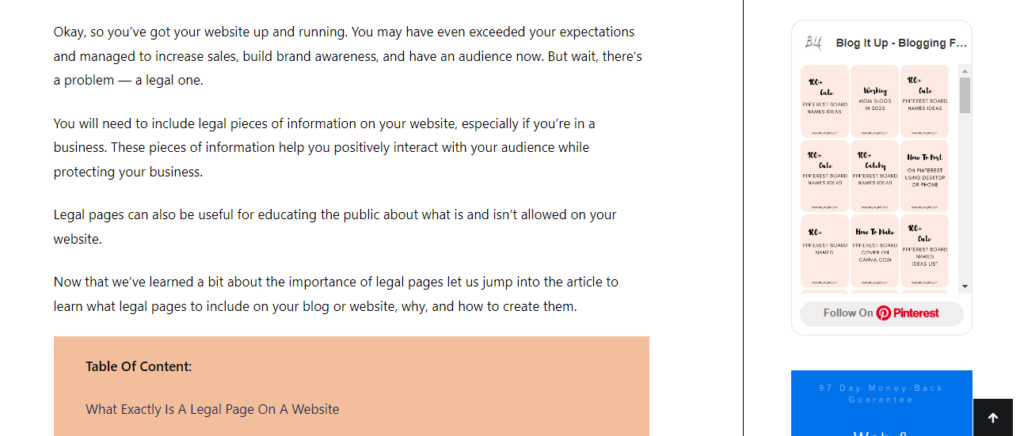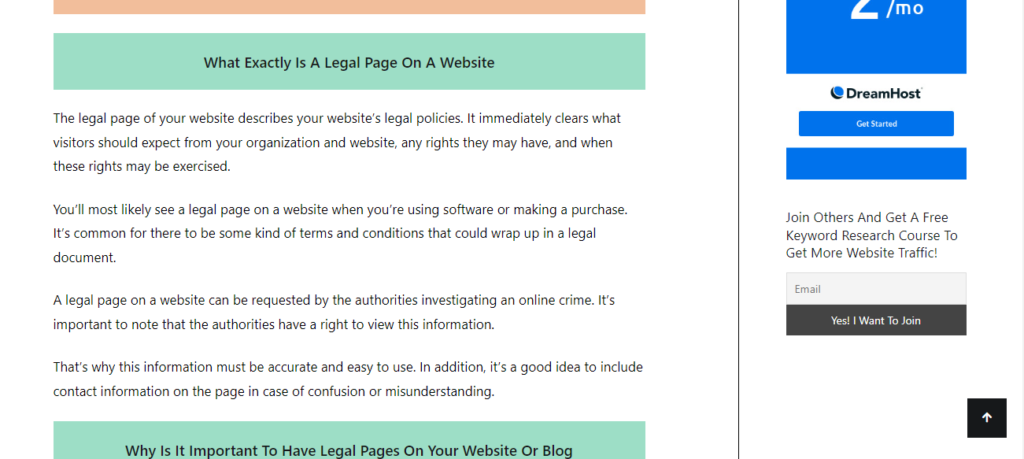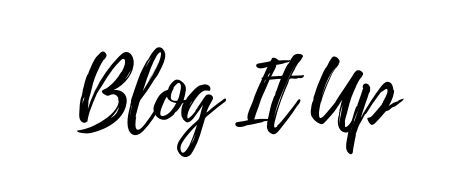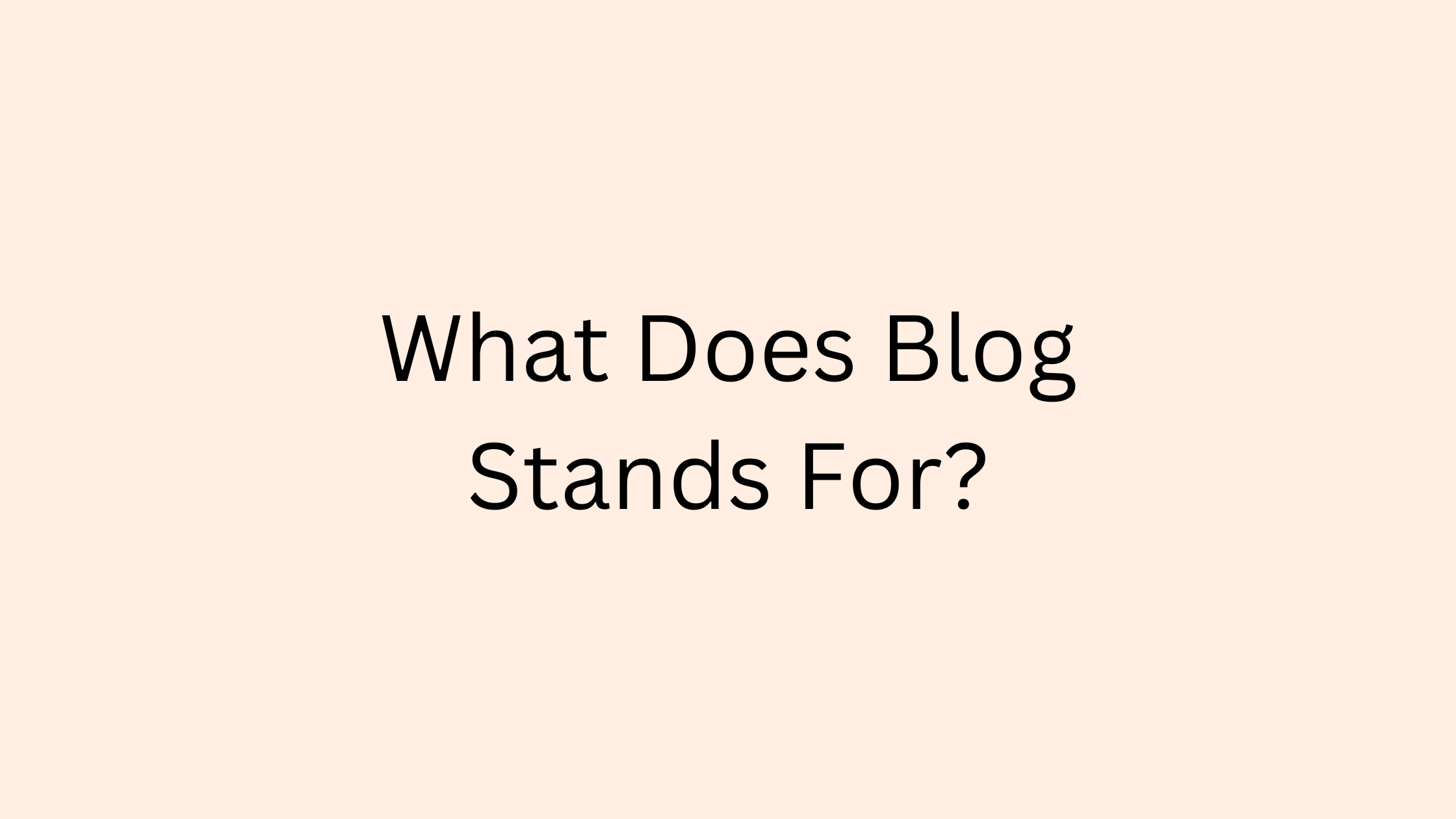What Does Blog Stand For
What does blog stand for?
A blog is short for “web log.” A blog can be defined as a regularly updated website containing commentary, links to other web documents, and often other elements such as images, audio, or video.
They are usually maintained by an individual, sometimes anonymous or pseudonymous, or a company or other organization.
Blogs can cover personal topics, professional endeavors, or a specific area of interest. Some blogs focus on travel, some focus on political issues, and others on technology. Many blogs cover a combination of topics and are written by professionals in the industry about their careers.
The primary purpose of blogs is to share content with the world while giving readers insight into the author’s mind and perspective through personal experiences and tips they’ve picked up along the way.
The History Of Blogs
The concept of blogging emerged during the 1990s as a way to share information via the internet. The first blog was created in 1994 by a student named Justin Hall (Link.net). He used the platform to share his views.
Later in 1997, Jorn Barger coined the term “weblog,” which was later shortened into “blog” by Peter Merholz in 1999.
This early version of blogging wasn’t really designed for sharing information with others; it was simply an online diary kept for personal use only.
However, as technology advanced and more people connected to the internet, blogs grew in popularity and became an essential tool for businesses and organizations to communicate with their customers or members.
Today, many companies use blogs as part of their marketing strategy because they are inexpensive and easy to manage. They also allow companies to connect with their customers on an informal level that isn’t possible through traditional marketing methods like advertisements or press releases.
Sign Up And Get A Free Keyword Research Course In Your Mail Box To Increase Your Google Rankings!
What Is Blog Used For
Blogs are used for a wide variety of purposes by both individuals and companies. Some blogs are used to chronicle a journey or provide information about an individual. Others feature commentary on current events or life experiences. Still, others provide reviews and recommendations for products and services.
Blogs can be used as personal journals, travelogues, finance, or even an outlet for creativity. They can include links to other websites and social media accounts. They can be private or business-related, but the vast majority of blogs have at least some element of self-expression in them.
Many people start their own blogs because they want to share their thoughts with others while also being able to earn money from their work through advertising revenue or affiliate marketing programs. This type of blogging is called “paid blogging,” and it’s usually done by professionals who have proven themselves through years of experience.
Types Of Blogs
There are several types of blogs, each serving a different purpose. Here are some of the most common categories:
Personal lifestyle blogs:
These blogs usually follow a certain theme or topic and chronicle the experiences of the blogger, such as travel and cooking. They can also be about family life.
Business Blogs:
Type of blogs run by business owners or employees to inform customers about products, services, events, and other related topics. Business blogs can also be used as marketing tools to get more traffic to your site or increase sales by getting people interested in what you have to say about specific topics.
Food Blogs:
Food blogs focus on food-related topics such as recipes, restaurant reviews, and cooking tips.
Health And Fitness:
These blogs usually focus on weight loss, nutrition, and exercise routines.
Travel:
These blogs focus on one particular area or country and provide information on places to visit, things to see and do while traveling there, etc.
Finance:
These blogs are usually written by people with a lot of experience in this field. They can provide great tips and advice on managing your finances better.
News blog:
These blogs provide commentary on current events in an unbiased manner. News blogs have gained popularity because they offer a different perspective than traditional news sources like newspapers or television networks.
How-to blog:
How-to blogs provide detailed instructions on how to do something specific, from cooking a new recipe to installing new software on your computer. These blogs usually include step-by-step instructions with photos or videos for easy reference.
Product review blog:
These blogs focus on reviewing products or services and providing information about them to readers who may be interested in purchasing them for themselves.
Although there are many different types of blogs, they all have one thing in common – they’re written by someone who has something important to say and wants an audience for that message.
What Is A Blogger
The term “blogger” can refer to anyone who has a blog. Bloggers are often passionate about their topics and use their blogs to express themselves, share their expertise, connect with people and make a living.
There are many different types of bloggers and blogging styles. Some bloggers write reviews of products or services, others write about current events, while others focus more on personal content like family life or travel stories.
There is no one “right” way to blog; however, some general guidelines can help you decide how your blog should be organized and what you should post.
Sign Up And Get A Free Keyword Research Course In Your Mail Box To Increase Your Google Rankings!
What Is An Example Of Blog Post
A blog post is a short piece of writing that shares information with the reader. It’s often written in a conversational tone and can be either informative or entertaining.
The one you are reading right now is a blog post, but here is an example of my latest blog post anyway, “7 Must Have Legal Pages For Your Blog or Website“:


This is a good example because I have broken down a topic that most people find complicated into an easy-to-understand manner so that anyone with no knowledge of the subject can follow along.
How Do Bloggers Get Paid
Here are four different ways that you can earn money from your blog:
Affiliate Marketing:
Sites like Amazon, eBay, and Etsy pay bloggers for each sale they generate. Bloggers link to these product pages on their site, then receive a percentage of the sale price when someone clicks through to make a purchase.
Sponsored Blog Posts:
Companies pay bloggers to write posts about their products or services. These posts usually appear on the blogger’s site and may also be distributed through social media channels like Facebook and Twitter.
Displaying Ads:
The most common way for bloggers to get paid is through advertising. Most bloggers have ads on their sites, and they make money per click or per 1000 impressions (depending on the type of ad). The amount of money varies widely depending on the site views and traffic locations.
Selling Your Own Products:
A better way of making money from your blog is by creating your own products, like e-books, courses, audiobooks, etc., and selling them on your website or through other channels like Amazon.
How To Create A Blog
The process of creating your blog can seem intimidating at first, but once you get started, you’ll find it’s pretty simple. All you need is some basic computer skills and the ability to follow instructions.
Pick A Topic:
Before you start blogging, you must pick a topic you’re passionate about and can write about consistently. For example, if you love food, consider creating a food blog, or if you are interested in traveling, consider starting a travel blog.
The point is to choose something that interests and excites you so that when you write about your passion, it comes through in your writing.
Also, ensure there’s an audience for it, i.e., people who might want to read your posts or learn more about your topic and it’s monetizable.
Choose A Domain Name:
This is the name of your website; it needs to be unique, and it should also be easy for people to remember so they can go back later for more information about your business or products/services if they find something interesting.
Choose Your Platform And Hosting:
Many platforms are available today, but WordPress and Blogger are two of the most popular. Both platforms offer easy-to-use tools and templates, so you don’t have to worry about coding or design skills.
It is better to start a self-hosted blog than a free hosting blog because it allows you to own the blog, has more customization options, and can be monetized.
And for a hosting provider, I highly recommend DreamHost.
Pick A Theme For Your Blog:
A theme is the design and color scheme of your blog. It’s what makes your blog unique, whether it’s a pretty pastel pink or an all-black theme. If you need help choosing a theme, it might be a good idea to review some popular themes and see which one appeals most to you.
Whatever theme you choose, make sure that other users have tested it. This will help ensure that they work well with different browsers and devices.
Start Writing:
Once your blog is set up, it’s time to start writing! The secret of getting traffic is having good content on your blog. The more useful information you provide, the more people will read it and share it with others.
Monetize Your Blog:
Monetizing your blog is just as important as creating good content. If you are writing blog posts to make money, then you have to have a plan on how to generate revenue.
If you have a blog with a lot of traffic, then you can sell ad space or become an affiliate for a company. You can also make money by selling products through your blog or charging for access to premium content.
Conclusion
Blogging can be great for an individual’s career and professional development. For instance, it allows you to share your work, promote new projects, demonstrate skills, and provide insight into your favorite topic.
It also opens up the possibility of attracting prospective employers and clients. If you’re thinking about blogging, make sure that you set yourself up for success by getting your name out there, sharing your work with an audience, and communicating the value of what you have to offer.
Anyway, I hope this post answers all your blogging questions and helps you get started and enjoy it.
Frequently Asked Questions
What Does A Blog And Vlog Stands For?
A blog is a website that includes articles, commentary, and other writings by its authors. Some blogs also have images or videos. Blogs can feature many topics, including politics and current events, sports and entertainment, personal finance and money-making schemes, social justice issues, and more.
As for a vlog, it is similar to a blog, but instead of using text, it uses video as its primary form of communication. A vlog can be as simple as just using your phone to record your video while talking about something relevant to you. It can also be as elaborate as having professional video equipment used to produce professional-looking videos.
What Is Blog Writing?
Blog writing is the art of creating online content for the purpose of informing, educating, and entertaining readers.
It is also possible to use blog writing as a marketing tool for promoting a product or service. It’s important to keep in mind that not all blogs are created equal. Some blogs are simply marketing tools, while others focus on providing valuable information to their readers.
What Is Another Word For Blog?
Another word for blog is a weblog.
Can Anybody Write A Blog?
The answer is yes! You don’t need to be a professional writer or an expert on the subject matter. As long as you have something interesting to say and can communicate it in a way that engages readers, you can write a successful blog.
What Makes A Good Blog?
A good blog is well-written, well-researched, and offers plenty of useful information. It will keep its readers interested and coming back for more.
Do Beginner Blogger Make Money?
The answer is yes. If you’re willing to put in the work, then you’ll be able to build a successful blog and monetize it.
Sign Up And Get A Free Keyword Research Course In Your Mail Box To Increase Your Google Rankings!
- 180+ Cake Business Names - July 23, 2024
- How To Start An ATM Business - July 20, 2024
- 120+ Crochet Business Names - July 17, 2024

